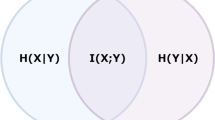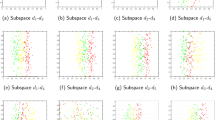Abstract
Semantic information retrieval provides more relevant information to the user query by performing semantic analysis. In such a scenario, knowledge representation using ontology can provide effective semantic retrieval facility which is more efficient than representation using semantic networks and frames. The existing information retrieval systems have been developed to handle very large volume of data and information stored in text format. On the other hand, the information available in the current web based applications such as Facebook and twitter grow very fast and hence the existing information retrieval systems consume large amount of time for relevant information retrieval. Moreover, most of the existing search engines use syntactic approach for information retrieval and use page ranking algorithms to measure the relevancy score. However, such approach is not able to provide more accurate results in terms of relevancy. Therefore, a new semantic information retrieval system is proposed in this paper which uses feature selection and classification for enhancing the relevancy score which is performed in this work by proposing a new intelligent fuzzy rough set based feature selection algorithm and an intelligent ontology and Latent Dirichlet Allocation based semantic information retrieval algorithm. The main advantages of the proposed algorithms are the increase in relevancy, ability to handle big data and fast retrieval.




Similar content being viewed by others
References
Blei, D.M., Ng, A.Y., Jordan, M.I.: Latent Dirichlet allocation. J. Mach. Learn. Res. 3, 993–1022 (2003)
Wei, X., Croft, W.B.: LDA-based document models for ad-hoc retrieval. In: ACM SIGIR Conference on Research and Development in Information Retrieval (SIGIR’06), pp. 1–8 (2006)
He, Q., Chang, K., Lim, E.P., Banerjee, A.: Keep it simple with time: a reexamination of probabilistic topic detection models. IEEE Trans. Pattern Anal. Mach. Intell. 32(10), 1795–1808 (2010)
Torii, M., Arighi, C.N., Li, G., Wang, Q., Wu, C.H., Vijay-Shanker, K.: Rlims-P 2.0: a generalizable rule-based information extraction system for literature mining of protein phosphorylation information. IEEE/ACM Trans. Comput. Biol. Bioinform. 12(1), 17–29 (2015)
Wu, M.-S.: Modeling query-document dependencies with topic language models for information retrieval. Inf. Sci. 312, 1–12 (2015)
Hwang, R.-H., Hsueh, Y.-L., Chen, Y.-T.: An effective taxi recommender system based on a spatio-temporal factor analysis model. Inf. Sci. 314, 28–40 (2015)
Joho, H., Jatowt, A., Blanco, R.: Temporal information searching behaviour and strategies. Inf. Process. Manag. 51, 834–850 (2015)
Gao, Y., Xu, Y., Li, Y.: Pattern-based topics for document modelling in information filtering. IEEE Trans. Knowl. Data Eng. 27(6), 1629–1642 (2015)
Peng, M., Gao, B., Zhu, J., Huang, J., Yuan, M., Li, F.: High quality information extraction and query-oriented summarization for automatic query-reply in social network. Expert Syst. Appl. 44, 92–101 (2016)
Dou, Z., Jiang, Z., Sha, H., Wen, J.-R., Song, R.: Automatically mining facets for queries from their search results. IEEE Trans. Knowl. Data Eng. 28(2), 385–397 (2016)
Bobed, C., Mena, E.: QueryGen: semantic interpretation of keyword queries over heterogeneous information systems. Inf. Sci. 329, 412–433 (2016)
Guo, K., Liang, Z., Tang, Y., Chi, T.: SOR: an optimized semantic ontology retrieval algorithm for heterogeneous multimeida big data. J. Comput. Sci. https://doi.org/10.1016/j.jocs.2017.02.005 (2017)
Xueke, X., Cheng, X., Tan, S., Liu, Y., Shen, H.: Aspect-level opinion mining of online customer reviews. China Commun. 10(3), 25–41 (2014)
Claypo, N., Jaiyen, S.: Opinion mining for Thai restaurant reviews using neural networks and mRMR feature selection. In: 2014 International Computer Science and Engineering Conference (ICSEC), pp. 394–397 (2014)
Lipizzi, C., Landoli, L., Marquez, J.E.: Extracting and evaluating conversational patterns in social media: a socio-semantic analysis of customers’ reactions to the launch of new products using Twitter streams. Int. J. Inf. Manag. 35, 490–503 (2014)
Chung, W.: BizPro: extracting and categorizing business intelligence factors fromtextual news articles. Int. J. Inf. Manag. 34, 272–284 (2014)
Zadeh, L.A.: Fuzzy sets. Inf. Control 8, 338–353 (1965)
Dubois, D., Prade, H.: Rough fuzzy sets and fuzzy rough sets. Int. J. Genetic Syst. 17, 191–208 (1990)
Author information
Authors and Affiliations
Corresponding author
Rights and permissions
About this article
Cite this article
Selvalakshmi, B., Subramaniam, M. Intelligent ontology based semantic information retrieval using feature selection and classification. Cluster Comput 22 (Suppl 5), 12871–12881 (2019). https://doi.org/10.1007/s10586-018-1789-8
Received:
Revised:
Accepted:
Published:
Issue Date:
DOI: https://doi.org/10.1007/s10586-018-1789-8




